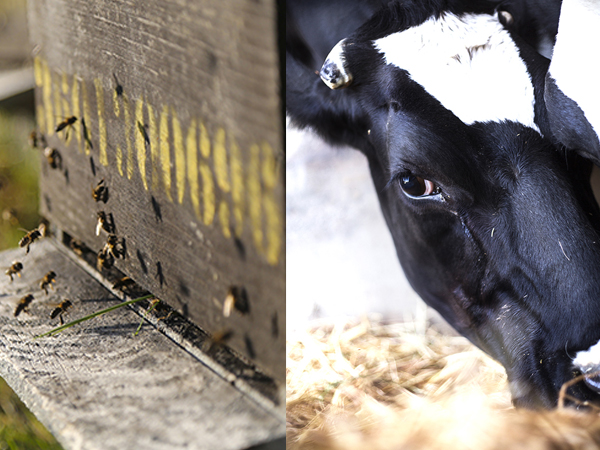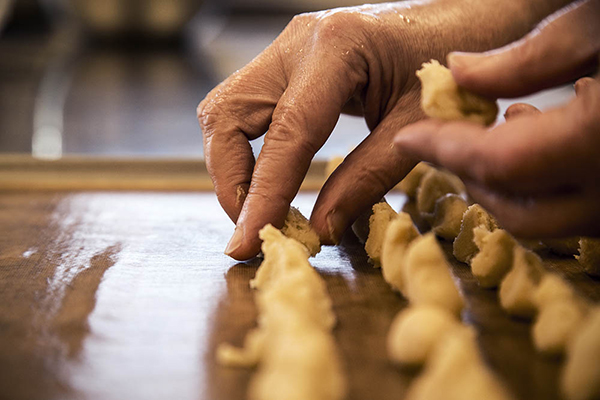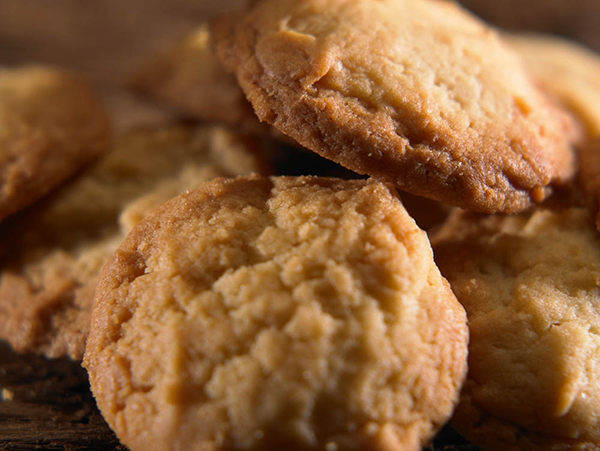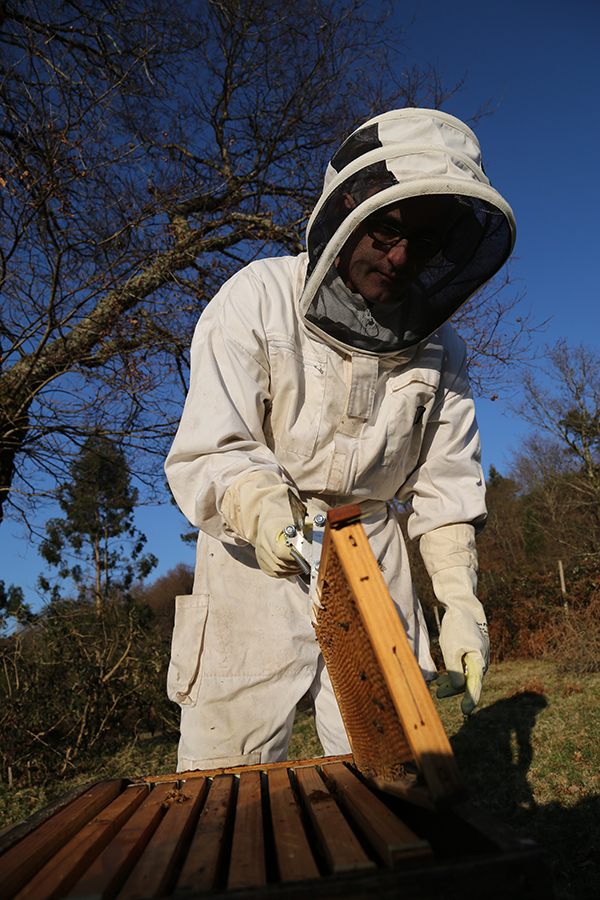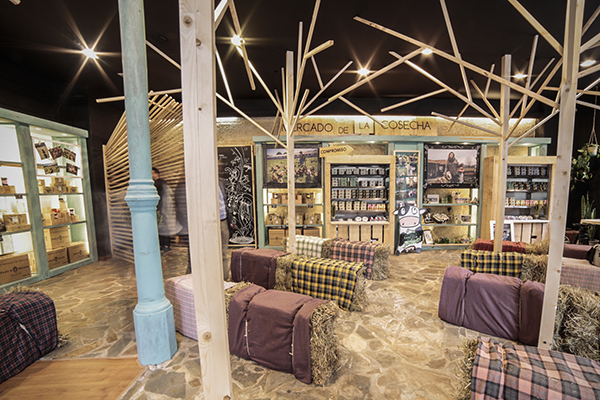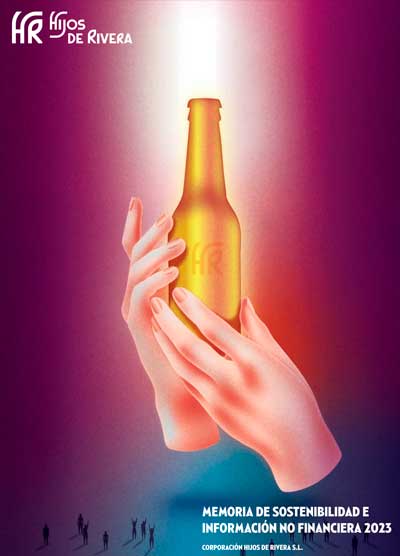The Mercado de la Cosecha opens its doors once again this week, changing its content completely to welcome 8 new exemplary projects for rural Galicia. This social commitment project aimed at the socioeconomic development of rural Galicia supported by Corporación Hijos de Rivera, R and Gadis maintains its philosophy of offering a platform from which rural initiatives that are worth discovering can share their experiences. This week will surprise visitors by totally changing the space located in Policarpo Sanz.
From today, Monday 15 June until 11 July, all visitors to the Mercado de la Cosecha in Vigo will have the opportunity to discover the Galician biscuits made by Granxa Maruxa, the organic honey from Abella Lupa, the marmalades and vegetable conserves of Amorodo, hand-made ice-creams by Bico de Xeado, the oils from Olei, Ponte da Boga wines, Naiciña chestnuts, Arqueixal yoghurts and cheeses, and Maeloc cider.
This first week of the re-inauguration will have Granxa Maruxa and Abella Lupa as protagonists, two initiatives that represent firm support for the countryside and the respect for their environment.
Opening times are 11am to 2pm, and 5-9pm. During the six days that Granxa Maruxa and Abella Lupa will be the protagonists of the Mercado de la Cosecha Pop-Up store the following activities will be held:
Tuesday 16, 5.30pm: As alvarizas do Candán (“The alvarizas of Candán) – Talk on these singular structures.
Wednesday 17, 6.30pm: Taller de velas (Candle workshop) – Activity for children in which they will discover the importance of wax and making candles.
Thursday 18, 6.30pm: Explanation about organic honey making, and a tasting of different types of honey.
Thursday 18, 7.30pm: Mujeres emprendedoras en la comarca de la Ulloa (Female entrepreneurs in the area of Ulloa) – Talk by Marta Álvarez from Granxa Maruxa.
Friday 19, 7pm: Honey tasting of different types of honey, by Abella Lupa.
Friday 19, 8pm: “Electrolírica rural”. Performance sponsored by Granxa Maruxa to demonstrate that in rural areas there are also important artistic manifestations.
About Granxa Maruxa
Granxa Maruxa is a 100% ecological farm located in the Ulloa area where the whole process is controlled scrupulously so as not to lose sight of any of the steps in the process.
They produce the Maruxas, biscuits that, besides organic ingredients, have a main ingredient which is, in their own words, “lots of love”. It all started with a small 200g box and nowadays the
Maruxas de Nata can be found in 5 different formats and in over 200 small establishments. How Marta Álvarez started to make these biscuits reflects a beautiful story of overcoming hurdles.
About Abella Lupa
Alexandre Cendón is a philosophy graduate who has reached the world of bee-keeping by chance. Abella Lupa has a double aim: to be an organic honey production project, and to recover and raise awareness about the cultural heritage associated with bee-keeping in Galicia. Besides this, it is an example of good practices acknowledged by the SEO Birdlife as Experiencia positiva en Red Natura (Positive experience on Red Natura) and it has won the Red Emprendeverde 2012 award, with a special mention for its significant contribution to the protection of biodiversity.
About the Mercado de la Cosecha pop-up store
The Mercado de la Cosecha Pop-Up store is an experience supported by Corporación Hijos de Rivera, Gadis and R with the aim of promoting Galician socioeconomic development and the sustainability of rural areas.
This space will be open from 15 May to 31 July, from Monday to Saturday, 11am to 3pm, and from 5-9pm. Throughout the next two and a half months, the Mercado de la Cosecha will become an open space for spreading and sharing ideas, and there we will see from the yoghurts of Casa Grande de Xanceda, to the plant sponges of Ibérica de Esponjas, the marmalades of Amorodo, cheeses by Cortes de Muar, the mariñeiras biscuits by Daveiga, free-range eggs from Pazo de Vilane, the oils from Olei, Arqueixal yoghurts, the clogs of Elena Ferro, chestnuts from Naiciña, ice-cream by Bico de Xeado, honey from Abella Lupa, earthworm compost by Ecocelta, baskets by Idoia Cuesta, biscuits by Granxa Maruxa, the apples with which Maeloc cider is made, and the grapes used for Ponte da Boga wines.


